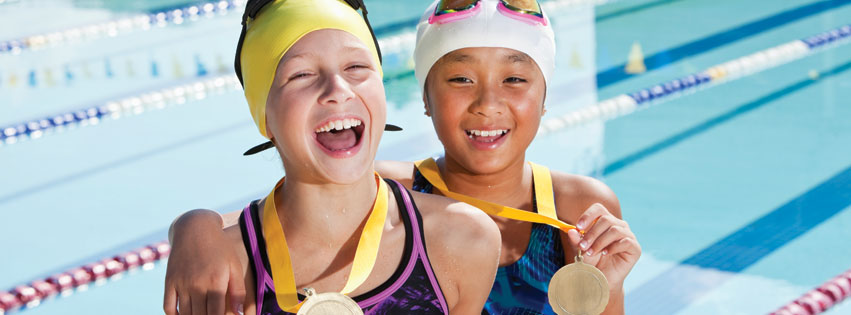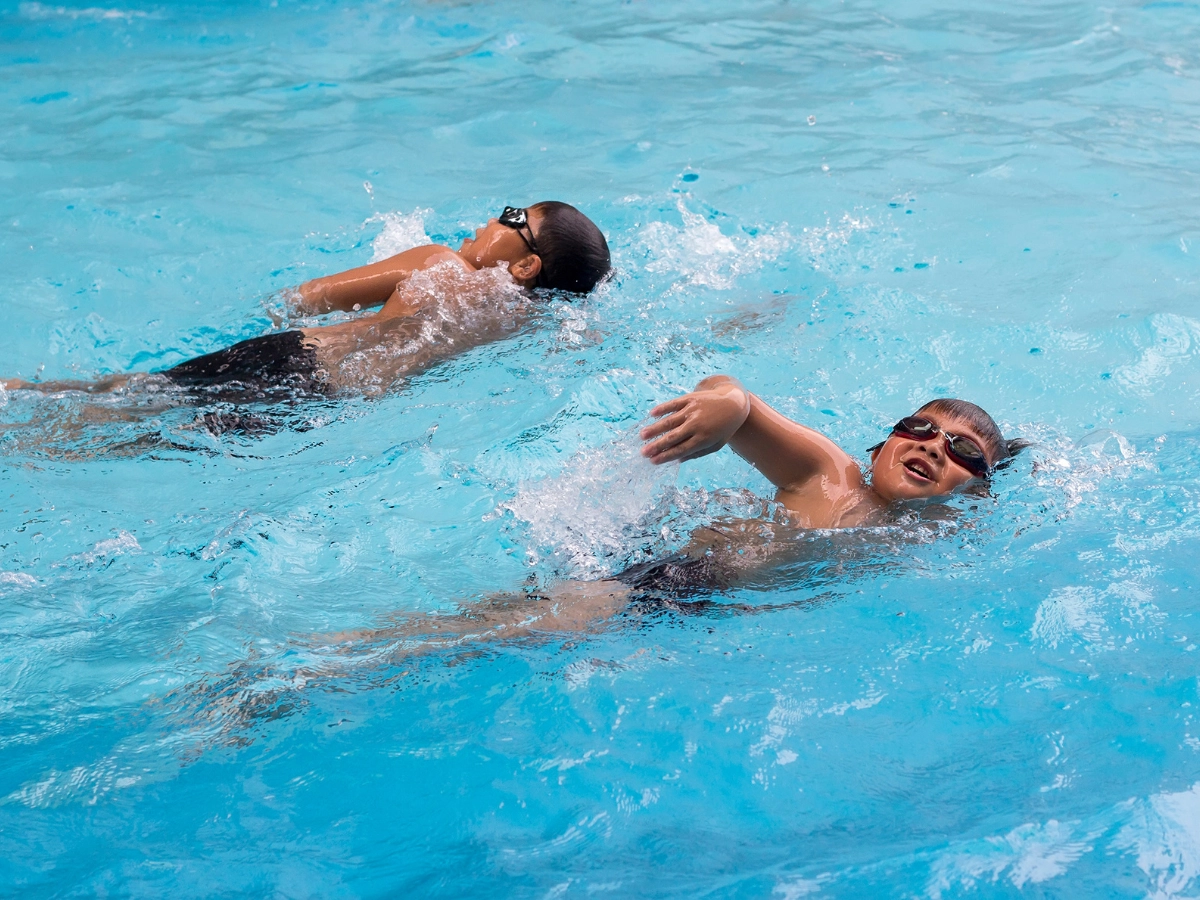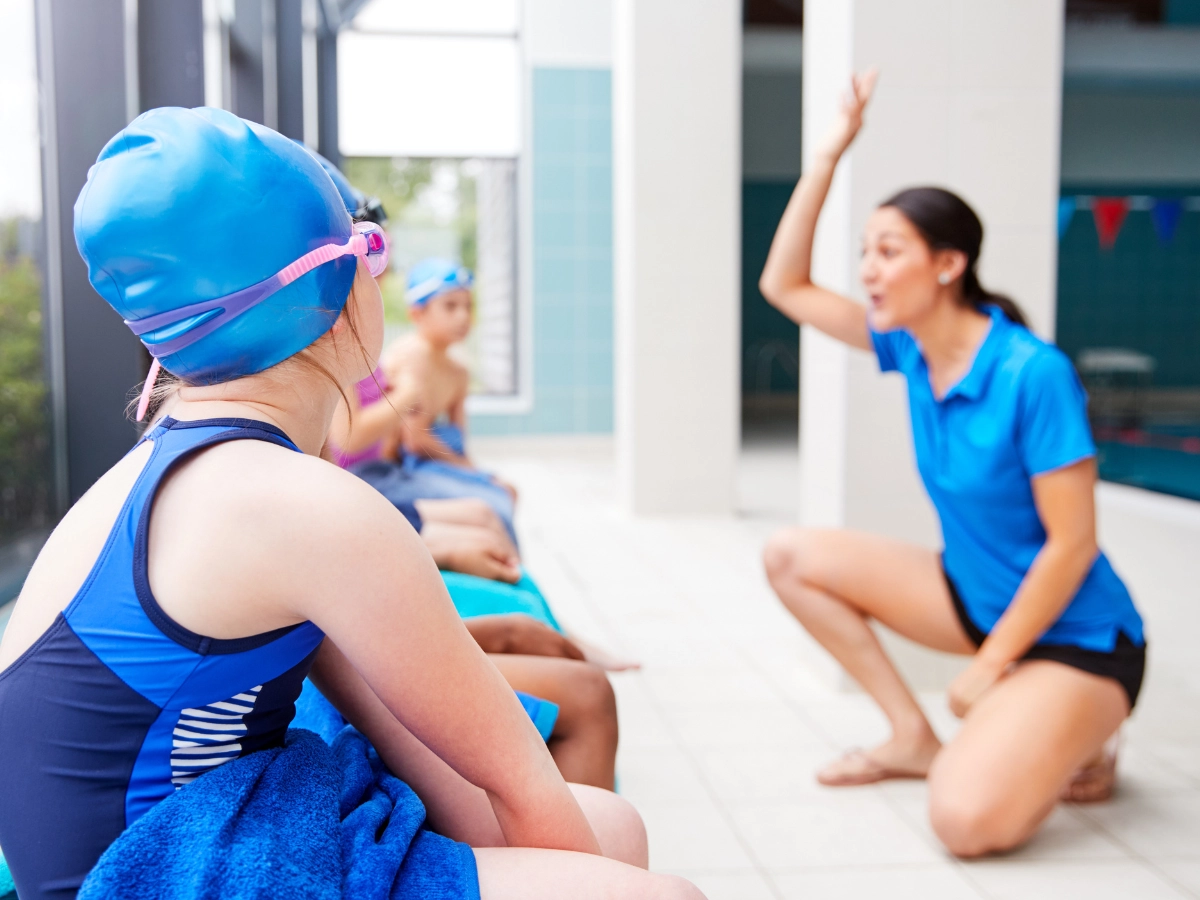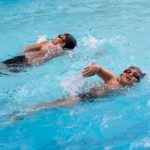There is no magic number that can tell a parent, or a coach, that a child is ready to swim competitively. Determining the “right age” depends on a variety of factors that should be assessed on an individual basis.
USA Swimming runs competitive swim meets for swimmers age 10 and under, while the YMCA offers competitive swim opportunities for kids eight-years-old and under. Most swimmers begin their competitive phase somewhere between the ages of eight and 12 years old. Depending on the opportunities available in your area, even a very young child may be able to compete – if they have the other necessary qualities.
Assessing the child’s technique and skill level
Any child will need at least a few years of swim lessons to learn technique before even thinking about competing. While there may be a competitive meet for eight-year-olds in the area, if he’s only been swimming for a year he isn’t likely to have the technique and experience to be competitive.
The American Academy of Pediatrics (AAP) recommends that “most children age four and older should learn to swim.” Both the AAP and the Red Cross have become more open to the idea that infants as young as six months can get into the pool when a parent participates in the lesson. Thus, a child can start learning swim safety and technique at any age the parent chooses. The younger a child learns to swim, the younger that child may exhibit the skills and temperament for competitive swimming.
To move to a competitive league, the child must have the endurance to swim at least 50 meters without difficulty. The child should also have sound technique in all four strokes. A professional swim coach can make this assessment.
Does your child even want to swim competitively?
Swimming is great fun. When kids get comfortable in the water early, they love swimming and splashing around. Even if a child shows some skill while having fun during swim lessons, that doesn’t mean he necessarily wants to become a competitive swimmer.
Does the swimmer in question not only love swimming but also gets excited about the idea of competing? Do they understand the time and energy they’ll have to commit to competitive swimming? There are “10 and Under” leagues that have numerous weekly, morning practices, plus dryland work.
It may take some kids more time to develop a competitive instinct and the maturity to commit to a training schedule than other kids, regardless of skill level in the pool.
Does the child have the emotional maturity to handle competition?
In a world of participation trophies, it can take some time for kids to transition to a competition where some participants win, and some lose. Everyone, regardless of age, needs to possess a certain mental toughness that can support the intensity of the competition.
When deciding whether a young child has the mental attributes needed to compete in a healthy and emotionally secure way, consider whether the child:
- Has the patience and behavioral skills to maintain focus and follow direction for a meet that can last for hours, and a competition day that’s even longer
- Understands and embraces the idea of setting goals and maintaining motivation to train to reach them
- Is mature enough to handle losing or not meeting personal goals set for the meet
- Can handle the pressure to perform, as well as any adversity that may arise
The child may be stronger in some of these skills than others, which can be a foundation in which to use competition to develop the other qualities. Or, the child may simply not yet be mentally and emotionally ready to compete.
Don’t let chronological age be a barrier
Swim leagues have chronological age groups for competition, so there’s a competitive meet for every age. Whether a child is ready to complete at age seven or doesn’t really show interest in competitive swimming until 13, there’s a lane for joining.
More problematic is pushing a skilled kid into competitive swimming before he or she has the other developmental attributes needed. Doing so may lead the child to drop out before having a chance to really develop – on their own schedule – into the competitive swimmer they could be.















